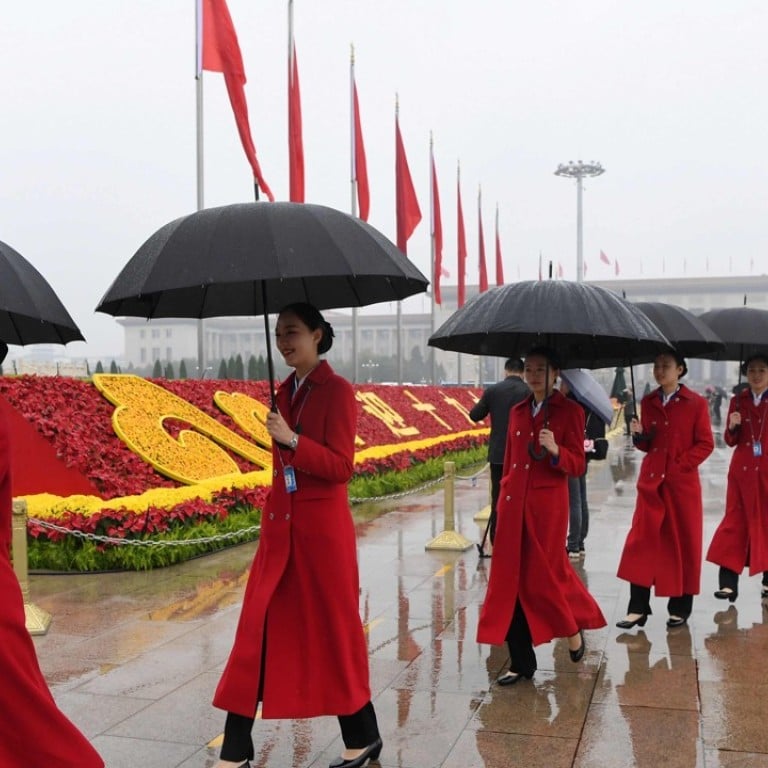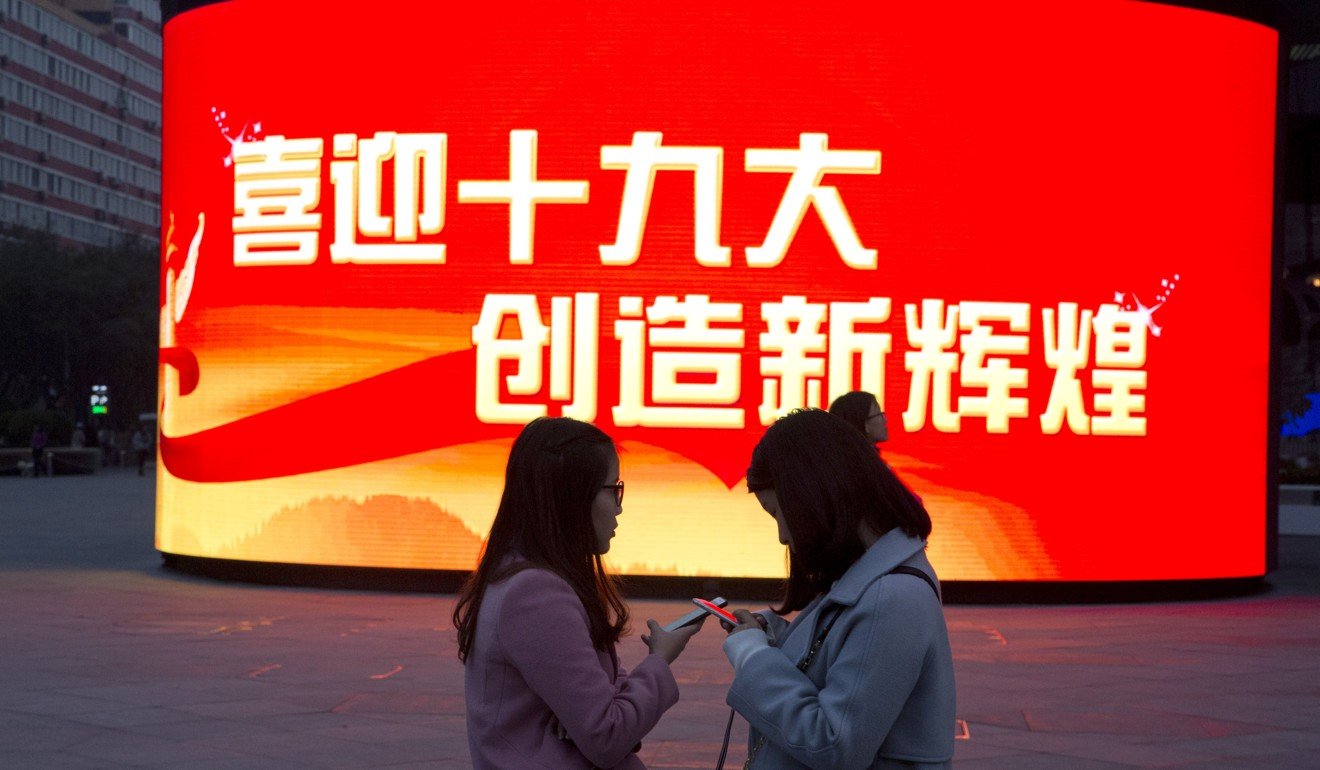
State media ridiculed for claim women are never harassed in Chinese culture
Attempt by China’s state media to gloat over Harvey Weinstein sex abuse and harassment scandal backfires
An attempt by Chinese state media to crow over the Harvey Weinstein case has prompted an outpouring of ridicule and anger.
It is common for Chinese media to highlight problems in the United States in an implicit or explicit attempt to argue that Chinese society under Communist Party rule is more “harmonious” than Western democracy, or to counter Western criticism of China’s human rights record.
But China Daily may have overstepped the mark when it ran an opinion piece by Sava Hassan, a “Canadian Egyptian educator,” entitled: “What prevents sexual harassment from being a common phenomenon in China, as it’s in most Western societies?”
The piece argued that Chinese men “are taught to be protective of their women.”
“Behaving inappropriately toward women, including harassing them sexually, contradicts every Chinese traditional value and custom,” the author wrote. “Chinese authority deals harshly with those who disrespect themselves by behaving inappropriately toward others.”
The reality, sadly, is just the opposite.
On Twitter, men and women who have lived in China pointed out that sexual harassment is in fact very prevalent in China but very rarely discussed.
One person pointed to a 2015 survey that showed that more than 30 per cent of college students in China have experienced sexual harassment, while another cited a 2014 survey – ironically reported in the very same China Daily – that showed that only a small percentage of sexual assault cases that occurred on Chinese campuses are reported by public security or education authorities.
“The author has certainly never been on a Beijing Subway with a skirt on,” tweeted @RyaButterfield.
“This article is utter rubbish. I work in Beijing and it’s not that much difference! I get harassed all the time!” tweeted @Yvonne_Leong_WK.
Others pointed to the 2015 jailing of five feminist activists who tried to stage a peaceful protest about sexual harassment on public transport in China, or to the marked lack of women in the senior ranks of the Communist Party, a fact that is hard to escape during a key Party Congress this week.
“China just hides the numbers, and jails feminist activists who try to raise awareness of the issue,” @HongKongHermit wrote.
“The Communist Party of China has built not just a glass ceiling to keep women from power but a reinforced concrete one,” wrote @realZoeSez.
“What a joke of an article. Not every bad news event in the US can be spun into the, ‘hey look, the US is not better than China’ narrative,” wrote @ecskuse.
Put simply, the contention is “quite absurd,” one commentator called chinesewoman95 pointed out on the China Daily website.
“Chinese society is extremely notorious when it comes to ‘victim blaming’, meaning that people constantly look for excuses to legitimise rape, to make it ‘reasonable,’” she wrote.
“Growing up as a girl, I remembered people, including myself, saying things like ‘wow that dress, what is she thinking? Isn’t she afraid to be harassed by people?’ or ‘no wonder that girl got raped. she was wearing inappropriate clothes.’ For some reason, when rapes and sexual harassment happen, it is easier for people, especially men and older women, to look at and blame the victims for bad things that happened instead of blaming the criminals.”
In fact, a combination of victim blaming, institutional biases toward men in authority and lack of free speech mean that sexual harassment is perhaps even less discussed in China than in the West.

The most complete response came from German author and writer on China, Christoph Rehage.
“Uh, having attended China’s most prestigious film school, the Beijing Film Academy, I can tell you that you are gravely mistaken.
– Christoph Rehage (@crehage) October 16, 2017“
“The Chinese movie industry is full of abuse. Many actresses, especially the younger ones, are being treated like prostitutes,” Rehage went on to write.
“It is normal for executives in the movie industry to take actresses (or other women) along to talks with officials to ‘charm’ them.”
“China is still patriarchal and sexual abuse is widespread. It’s only for a lack of transparency that the problem can be swept under the rug”
“These women are effectively being forced into the role of (the ‘three accompanies’: feasting, singing, dancing) and thus prostitution.”
“It’s an open secret that one of the most acclaimed Chinese directors, Zhang Yimou, has made many of his early female leads his girlfriends.”
“China is still patriarchal and sexual abuse is widespread. It’s only for a lack of transparency that the problem can be swept under the rug.”
“Western societies have systemic sexual abuse problems and discuss them. Chinese society has the same problems but doesn’t talk about them.”
“Lastly, the fact that articles like this go largely unchallenged in China should be a pretty good indicator of the overall situation.”
Rehage also made reference to Mao Zedong’s assertion that women “hold up half the sky.”
“Women in China have never been ‘liberated’ and using ‘half the sky’ is pure cynicism. Women were made to join the work force, that’s all,” he added.
“Mao Zedong ‘dancing’ and ‘conversing’ with the women from the (song and dance troupe) is a perfect symbol for Chinese society after the CCP (Chinese Communist Party) took over.”


